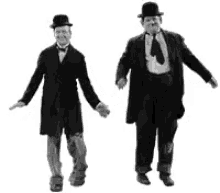Fitness Advice
-
Recently Browsing 0 members
- No registered users viewing this page.
-
Topics
-
-
Popular Contributors
-
-
Latest posts...
-
73
Poll Should Thailand legalize brothels?
I didn’t make up the definition of a sexpat. -
29
Report New Cannabis Regulation: Prescription Required for Sales
Every statement he's made is questionable, to put it politely. The fact of the matter is that if he really cared about young people, he'd focus on the things that harm them the most: motorbikes and cigarettes. Pot, unless you're still in the 'Reefer Madness' mindset, is relatively harmless compared to unregulated alcohol, which can make you violent and which is the cause of many road deaths. Consistency in their logic is woefully lacking. -
172
Early assessment suggests US strikes didn’t destroy Iran’s nuclear sites
Quite a bit, by the look of it https://en.wikipedia.org/wiki/False_or_misleading_statements_by_Donald_Trump -
23
Chatting up the farang totty.
Just wait until one of them is married to you for a year, or in a defacto relationship for 2 years. Then half your assets are theirs. -
19
Changing Return Flight.
Also only book directly with airline website. For US I pay $100. fee plus difference in ticket if any. Do not book with second party as changing dates will be traumatic. -
8
Politics Parliament Showdown Looms as Bhumjaithai Seeks to Oust PM
Well, while I certainly agree on that point, my fear is "what's next"? Anutin is equally power-horny like a small poodle and would also throw anybody in his way under the bus. Most of these MPs are there for the money and little interest in running the country, as long as the uneducated electorate is controlled with 500 Baht/vote against being able to do afterwards, what they want. What has been going on over the last few months has absolutely nothing to do in steering Thailand through murky waters, looking professionally into how to tackle economy, tourism and investment. This here is nothing but a tent of seriously professional circus clowns. Paetongtarn with zero experience fell nose forward into a nasty trap by Hun Sen - a despicable Khmer Rouge relict who should have been locked away while throwing away the keys. The MP is puppet mastered by her father who already sacrificed his own sister for pure personal power gain and maintenance. So is this, what Thailand is in 2025; nothing learnt since 1932? Seriously?
-
-
Popular in The Pub










.thumb.jpg.bc523c85a8d558dbc282dca7a2e602c9.jpg)


Recommended Posts
Create an account or sign in to comment
You need to be a member in order to leave a comment
Create an account
Sign up for a new account in our community. It's easy!
Register a new accountSign in
Already have an account? Sign in here.
Sign In Now